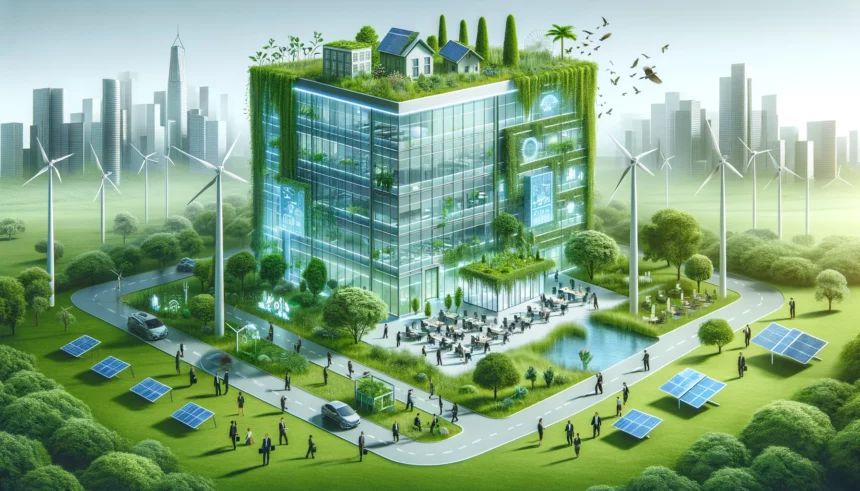Sustainability isn’t just a buzzword—it’s a necessity. If we look at the big picture, it’s clear: incorporating sustainable practices is a must for both the health of our planet and the strategic advancement of any business. And honestly, why wouldn’t we want to contribute positively both economically and environmentally?
Why Go Green? The Importance of Sustainability
Before diving deeper, let’s clear up what we mean by “sustainability.” It’s about running your business in a way that’s good for the planet, fair to people, and financially sound. Here’s what that involves:
- Economic Viability: Ensuring the business thrives today without compromising tomorrow.
- Social Equity: Engaging in fair practices that bolster community health and resilience.
- Environmental Responsibility: Minimizing environmental impact through smarter use of resources and reducing pollution.
Embracing sustainability isn’t just good ethics—it’s smart business. It saves money and polishes your company’s image, appealing to today’s environmentally conscious consumers.
Powering Up with Sustainability Grants
Transitioning to greener operations can sound pricey, but sustainability grants are here to help. These are funds from governments or private sectors aimed at encouraging businesses to adopt eco-friendly practices. Here’s what they offer:
- Purpose: To lessen the financial burden of adopting green practices.
- Support for Projects: Funds for things like renewable energy setups and waste reduction.
- Catalysts for Change: Providing not just money, but also expertise to implement sustainable projects effectively.
These grants make it feasible for companies of all sizes to take part in environmental conservation efforts, providing both the resources and the know-how.
Cutting Costs by Going Green
The direct benefit for our planet and wildlife is clear, but businesses have a lot to gain financially from going green as well. Here are a few ways companies are saving money while saving the planet:
- Resource Optimization: Using less saves more—both materials and energy.
- Energy Efficiency: Technologies that cut down energy use reduce bills.
- Waste Reduction: Less waste means lower disposal costs and potential income from recycled materials.
Adopting these practices not only helps the environment but also streamlines operations and cuts down costs, proving that environmental responsibility and profitability can indeed coexist.
Tech Upgrades for Energy Savings
Let’s look at some technologies making a big difference:
- LED Lighting: These use a fraction of the energy traditional bulbs do.
- High-Efficiency HVAC Systems: Better heating and cooling with less energy.
- Solar Panels: Cut down on electricity bills and reduce reliance on fossil fuels.
- Internet of Things (IoT): Smart devices that monitor and adjust energy use automatically.
Investing in these technologies reduces operational costs and enhances the sustainability of your business.
The Bigger Financial Picture
While we see immediate cost savings, the long-term financial upsides are even more substantial:
- Market Differentiation: Stand out in the marketplace by appealing to eco-conscious customers.
- Regulatory Compliance: Avoid fines and benefit from potential incentives by meeting or exceeding environmental standards.
- Investor Appeal: Sustainability attracts investors looking for responsible, forward-thinking companies.
- Increased Asset Value: Eco-friendly investments can boost the value of your property and assets.
Looking Ahead: The Business Case for Sustainability
The rationale for shifting towards a sustainable business model goes beyond environmental protection—it’s about future-proofing your business. Companies that adopt sustainable practices aren’t just saving money; they’re ensuring their brand remains relevant and respected in a world where consumer preferences are rapidly evolving.
In the end, whether it’s about the planet’s health or the company’s longevity, sustainability is the key to thriving in today’s dynamic market. By embracing sustainability, businesses are not just participating in a trend—they are moving towards a future where they remain significant and successful.
















